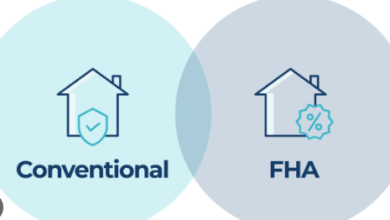7 Stages in Loan Origination Process Explained Here in Detail!

What is Loan Origination Process?
The loan origination process is the first stage of loan servicing. The finance sector is always extra careful regarding this process. Each bank and line of credit has its individual loan origination process. They are reluctant to share it because its uniqueness distinguishes them from their competitors.
However, there are certain similarities in the stages of the banking loan process of different institutions and types of loans. The standard practices of the loan origination process are explained below.
- Pre-qualification
This is the beginning of the process. The lender handovers a list of documents and information a borrower needs to submit to get the loan. This list varies according to the type of loan. For instance, the index for personal loans without security will differ from new small business loans. Some of the standard documents asked by the financial institutions are as follows:-
- ID proof – Vehicle license, aadhar card, passport, etc. are acceptable as id proof
- Address proof – Utility bills, voter id, aadhar card, etc., are acceptable as address proof.
- Income proof such as a salary slip
- Credit Score, which is reflected in your CIBIL score.
- Bank statement
- Details of previous loan (if any)
If your documents and information are satisfactory, you get ahead in the process. Some financial institutions might even consider you for a pre-approved personal loan.
- Loan Application
As the name suggests, this stage includes filling up the loan application form or applying with a loan application. This used to be a paper-based exercise previously. But gradually, all finance companies have shifted to electronic versions of the application, such as applying online and through mobile apps.
The paperless application procedure is more efficient, allowing applicants to get an instant loan online.
- Application Processing
The digital applications are customised according to different types of loans. They are analysed for accuracy and completeness at this stage. Lenders will send it back or generate a query for the required information if the loan application is not filled properly or correctly. Otherwise, it is sent ahead for the underwriting process.
- Underwriting
The underwriting process is unique for every loan as the risk differs according to the type of loan. However, the lenders generally check the application’s completion status as the first step in underwriting. Afterwards, the CIBIL score and other criteria are considered to determine the borrower’s creditworthiness.
This process is also fully automated and digitised with accelerated underwriting guidelines loaded in the software and LOS (Loan Origination System).
- Credit Decision
The application is the most critical factor for the credit decision. Based on the application, CIBIL score, and other criteria, the credit decision will be taken, which is also primarily automated.
The software decides the loan amount and interest rates based on the borrower’s credentials. For instance, if someone asks for a loan with a low credit score or wants a personal loan without collateral security, the system may reduce the loan amount, increase the interest rates, or do both.
- Quality Check
This is the last stage of the loan origination process before the loan funding is completed. But it’s a necessary procedure as lending is highly regulated, especially the procedure for personal loans as they are generally unsecured. The quality check is done in accordance with the rules and regulations.
- Loan Funding
Most loans are disbursed in no time after the quality check. But the, loans such as unsecured business loans and loans against a line of credit and property may take additional time. The LOS is there to help the bank track the funding completion after the submission of all necessary documents.
Signing Off!
Every institute applies these 7 standard banking loan processes with some customisation. The good thing is that modern financial services concentrate more on customer engagement and satisfaction than ever. They design their procedures to meet customer expectations and also the required criteria.
Author Bio:
Shiv Nanda is a financial analyst who currently lives in Bangalore (refusing to acknowledge the name change) and works with MoneyTap, India’s first app-based credit-line. Shiv is a true finance geek, and his friends love that. They always rely on him for advice on their investment choices, budgeting skills, and personal financial matters and when they want to get a loan. He has made it his life’s mission to help and educate people on various financial topics, so email him your questions at shiv@freopay.com.





